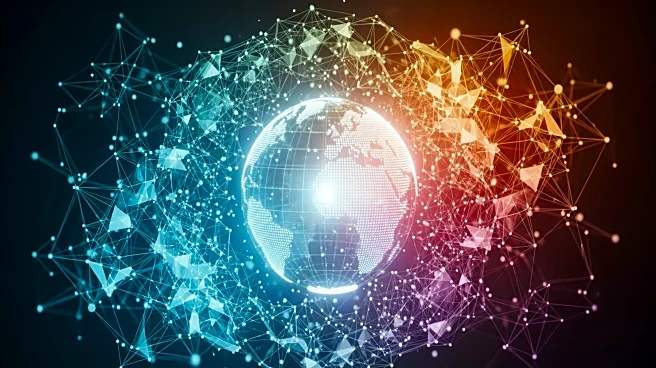What's Happening?
Social media platforms have become integral to modern society, offering new ways to connect and express oneself. With over half the global population using social media, these platforms have fundamentally
changed how relationships are initiated, built, and maintained. However, researchers are only beginning to understand the consequences of social media use, particularly its impact on mental health and the rise of extremism. Social media can contribute to feelings of loneliness and depression, while algorithms may lead users to fringe content, fostering extremism. Despite these challenges, social media remains a powerful tool for digital activism, enabling movements like #MeToo and #BlackLivesMatter to drive social change.
Why It's Important?
Social media's impact on society is significant, influencing communication, mental health, and political activism. While it offers opportunities for connection and self-expression, it also poses risks such as misinformation and extremism. Marketers play a crucial role in using social media to spread positive messages and combat misinformation. As social media continues to evolve, it is essential to hold platforms accountable for their global consequences and ensure they remain a force for social good.
What's Next?
The ongoing challenge is to balance the benefits of social media with its potential drawbacks. Platforms must address issues related to misinformation and extremism, while marketers should focus on spreading progressive messaging. As social media becomes increasingly integrated into daily life, there is a need for strategies to foster positive digital communities and mitigate negative impacts.
Beyond the Headlines
Social media's influence extends beyond personal communication, impacting public health, digital activism, and societal norms. It provides a platform for marginalized voices and supports social movements, but also contributes to the spread of misinformation and fake news. The use of social media raises critical issues regarding privacy and data security, highlighting the need for stronger regulations and ethical guidelines.









